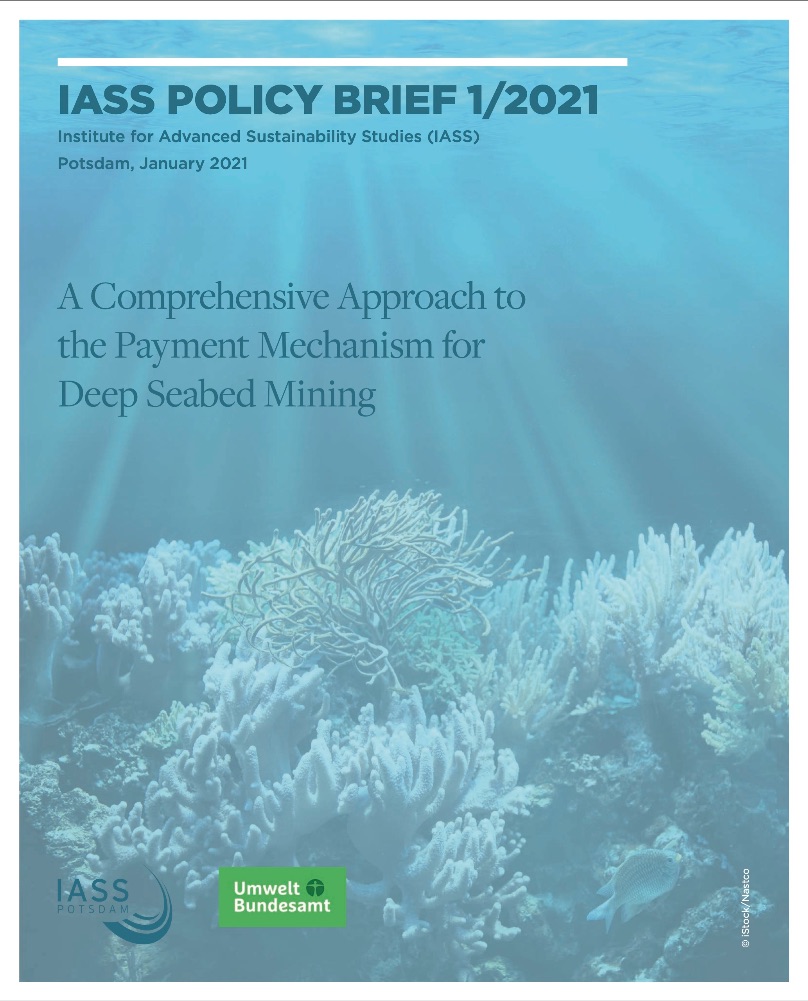A Comprehensive Approach to the Payment Mechanism for Deep Seabed Mining

The International Seabed Authority (ISA) is presently developing regulations (the “Mining Code”) to govern the exploration and exploitation of mineral resources of the international seabed (or “Area”). Whilst the financial mechanism is a critical component of this Mining Code, its development has been delegated to the Open-Ended Ad Hoc Working Group of the Council. These informal discussions have prioritized a model that gives preference to enabling mining over delivering fair compensation for the loss of resources. A new policy brief from the Institute for Advanced Sustainability Studies argues that a fundamentally different and comprehensive approach is required and outlines some of its key components.
Drawing on concepts of sustainability, climate change, biodiversity, and circular economics, this approach emphasizes the importance of safeguarding the natural capital of the deep ocean. The social, cultural, and environmental impacts of seabed mining in the Area need to be fully reflected in economic assessments of proposed mining activities. This would enable any potential benefits to be adequately identified and – should the activities proceed – equitably shared. The payment mechanism is a means to ensure that all humankind, including future generations, enjoys the benefits of its shared stewardship of the Area. The mechanism must accordingly reflect the wider aspirations of the United Nations Convention on the Law of the Seas (UNCLOS).
Message 1:
Reflect the risks to the deep-sea environment
The deep ocean is a complex environment that provides numerous ecosystem services. A holistic accounting system based on true cost and natural wealth is needed to capture impacts on ecosystem resilience and identify any potential financial benefits. The financial mechanism should reflect all costs and risks associated with mining in the Area.
Message 2:
Be inclusive of stakeholder interests
The payment regime must be designed with foresight and be sufficiently responsive to the concerns and priorities of diverse stakeholders, including indigenous and civil society actors as well as future generations.
Message 3:
Deliver optimal returns to Humankind
The payment regime needs to be designed with the interests of Humankind, and in particular of developing countries rather than contractors at its centre. Ensuring optimal returns requires a financial model that delivers best possible cost structures and timing.
For more information and to download the report from IASS, click here.
